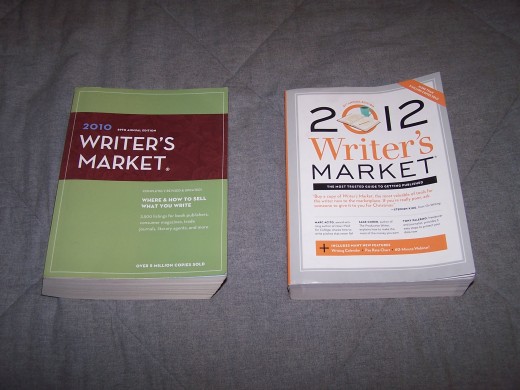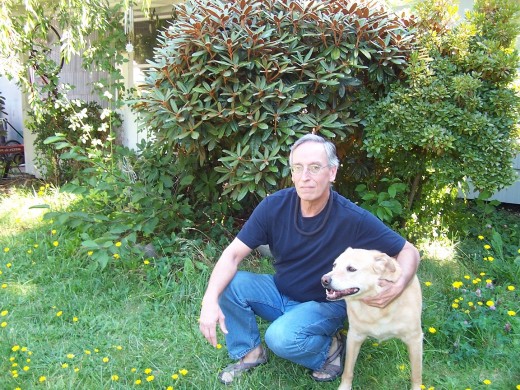The Writer's Mailbag: Installment Fifteen
Here’s How It Works
Welcome back to the Writer’s Mailbag. You ask the questions and I answer them. How easy is that? If I don’t know the answer I’ll say so, but chances are one of my readers will know the answer and they will leave it in the comment section. If it’s something I can look up easily, I’ll do so. If I do know the answer, I’ll flaunt it.
Ask your questions below, or on my website at www.williamdhollandauthor.com, and I’ll get to them in the next installment if at all possible.
So let’s begin, shall we?

Character Naming
“Good morning Bill. Here is a question for your writer's mailbox. When creating the characters for a story, how important is the name given to the characters? All of your writing is so very thoughtful, I would assume that you also carefully consider this part of the formation of the players in your story.”
This is a great question. Unfortunately, there is no great answer that works for everyone. It seems that all authors have their own criteria when picking names. Some best-selling authors will literally pick names out of a telephone book. Some will recall people from their past that they have met. I have used that technique when naming secondary characters.
I can give you a couple examples I used in my novels. In my first novel, The 12/59 Shuttle, the daughter of the main character was named Astarte, because I wanted a name that meant “change.” I went through different languages and finally settled on Astarte.
In my second novel, Resurrecting Tobias, I chose Toby King as the name of the main character because I wanted an All-American name for an All-American boy. The other two main characters were named Maria and Pete, and there was no thought given to those names at all. They were just common names that were used quite often during that era.
So I guess I’m saying this: unless there is a specific purpose behind having a special name, like Astarte, then one just goes with the gut and chooses accordingly.
ELANCE
From Sandra: “Speaking of low pay have you ever written or picked up jobs on Elance? When you search writing jobs they always pop up with having these great jobs but I've never gotten any responses from them. Just curious.”
I think I should start this answer by saying I have nothing against sites like Elance. I actually know a couple writers who write often for Elance and they swear by them.
I’m simply saying that those sites are not for me. I would rather find my own writing gigs the old-fashioned way…by pounding the pavement and drumming up my own business. It worked for me in other fields of employment for decades, and if it ain’t broke, then don’t fix it.
I think a writer can make decent money on Elance. It’s just not for me.

The Writer’s Market
From Lori: “The Writers Market is good to have, but do you feel they get outdated real fast?”
Lori is referring to the book “The Writer’s Market,” which is published every year. It is the “go to” publication for writers, whether they are writing novels or writing for magazines. It is a wealth of great information, and there are always sections in it listing agents and publishers. Lori is asking about the fact that sometimes the information is outdated by the time the book is printed.
It is true to a small degree. Agents come and agents go. Publishers come and go. Such is the nature of any business. However, I have been using The Writer’s Market for four years now, and I have found it to be invaluable. When an outdated piece of information is found, I can find updated information on individual publishing websites, so it is a minor inconvenience at best.
One final note and then we’ll move on. I have probably contacted over 200 agents and publishers using The Writer’s Market, and I have been stymied by outdated information maybe five times. I consider that a pretty good batting average.
I really do recommend this book to all freelance writers in the United States.
FOOTNOTES
From Bill: “I have a question about end notes and foot notes. When should they be used, and how are they properly formatted? Thanks!”
I’m going to borrow from the APA (American Publishers’ Association) for the partial answer to Bill’s question:
The APA suggests two instances in which footnotes may be used:
Content Footnotes: to offer further information on a topic that is not directly related to the text. As content footnotes should be concise, avoid writing lengthy paragraphs or including extraneous information.
Copyright Permission Footnotes: to cite adapted or reprinted materials in the paper, especially data sets, tables, and quotations that exceed 400 words. Consult the APA Publication Manual (6th ed.) for more information about copyright permissions.
It is recommended that writers refrain from extensive usage of footnotes as this practice may distract or confuse readers. When applicable, incorporate additional information in the main text of the paper, but avoid inserting irrelevant material. Footnotes should briefly present the reader with meaningful information that enhances your argument.
How should footnotes be formatted?
Footnotes may be displayed in one of two ways:
- Listed at the bottom of the relevant page
- Assembled altogether on a new page, following the References page(s)
If there is a proper method of formatting, I was unable to find it. For those of you a bit confused, endnotes appear at the end of a section of writing, while footnotes usually appear at the end of a page or chapter. In some articles or books, all footnotes appear at the end of the book, but many writers do not suggest this since it is confusing for the reader to constantly shift back and forth for information.


INSPIRATION
From Tammy: “Bill, where does your inspiration come from when you are writing creative pieces?”
Thanks for the question, Tammy. I suspect the answer to this one might be a bit different for every writer. For me, I rely heavily on the senses and emotions we all share. I will see a situation, or some prompt, and I start listing how that makes me feel. I list what it smells like, looks like, feels like, sounds like, and tastes like. Those are things every reader can understand. Couple those with emotions, and I have the inspiration for an article.
I work from the basic assumption that we all share certain traits and thoughts. My job, as a writer, is to tap into those similarities so that my readers can relate to my message.
Busy Work or Necessity
From Ecogranny: “Okay, billybuc, I have another question for you. After spending a month editing about one quarter of my former lenses, now hubs, I detect a pattern. By the time I check off as many boxes as I can on the hub tool tips, I end up with really long hubs. One is nearly 3,000 words in length. Several are in the 2500 and up range.
I'm sure I'll come back and pare them down, but for now I'm pushing on with the compliance edits. My question is this: Should I focus more on keeping my hubs in the 1150-1250 word range and less on making sure I have all the little boxes checked, or should I keep adding more capsules to keep the tool-tip gremlins happy?”
This is kind of a tricky question, and the answer depends, mainly, on what your goal is.
If your goal is to attract the search engine gods, then go for as many capsules as possible and don’t worry about length. If your goal is to actually have people read your article, then going beyond 1,500 words is pushing your luck, because most online readers do not have the attention span or the willingness to read 3,000 words.
The best of both worlds would be 1,500 words, three original photos, two videos, and one other capsule like a poll. Remember, though, that you just received my opinion and very little else. J
Join me on my writing blog
- William Holland | Helping Writers to Spread Their Wings and Fly
Tips and discussions about writing

More Next Week
Great fun…great questions….hopefully great answers. My thanks to all of you who asked questions and basically wrote this article for me. Let me know if I can reciprocate in any way.
For the rest of you, thank you for visiting and we’ll catch you again next Monday, same time, same place.
Have a great week and remember to take time to enjoy what you are doing. Writers rock!
2014 William D. Holland (aka billybuc)
“Helping writers to spread their wings and fly.”












